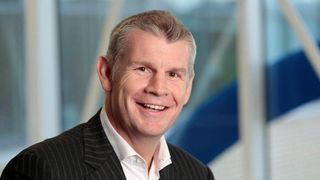Smashing it out of the park on the field and in the boardroom
Healthy living and the business world

How many emails have landed in your inbox lately from colleagues asking for sponsorship as they climb the highest local mountain, run a marathon or cycle the length of the country?
Getting fit used to be the mid-life crisis that dragged colleagues away from the office and into the gym at the end of the working day. But now, healthy living is a huge priority for companies of all sizes as we try to combat the effects of a stationary job. The impact this trend is having on the workplace is not just related to personal health, but it's also impacting organisational performance and job satisfaction.
Team building
The link between sports and success has been long debated, with the professional development benefits of amateur sports often talked about including team building, improved communication and discipline. At a corporate level, there are several areas of expertise that correlate to the skills developed in sport. These areas, among others, are organisational issues, stress, leadership, and one-to-one coaching and consulting.
Athletes are skilled at understanding the demands and constraints of organisational systems due to the need to comply with regional, national, and global sporting confederations. They are also able to handle the pressure and stress of performing in front of an audience and in situations where teammates are counting on them. The teamwork needed to succeed in many sports on and off the field is a crucial ability.
As a part of this, athletes are accomplished at identifying strengths and weaknesses, distributing resources and coaching others. All of these skills are easily transferable to the business world and can strengthen the core of the workforce.
There is a growing interest in encouraging these skills and promoting healthy living in corporate cultures. Companies are looking to create a more comprehensive approach that encompasses worker and organisational health, which may affect behavioural change and push team members to further develop in the workplace.
Dell Corporate Challenge
For example, we recently teamed up with Ordinance Survey, PwC and GE Aviation to host the Dell Corporate Challenge, which was designed to physically and mentally challenge global organisations, small businesses and the public sector, while supporting the charity Action for Children. A two-day adventure race, the challenge tested fitness, communication and drive as teams competed against each other to complete the race in the shortest time. Following the event, 85% of participants felt their leadership and coaching skills had improved and 95% felt their teamwork had improved as a result of the event.
Are you a pro? Subscribe to our newsletter
Sign up to the TechRadar Pro newsletter to get all the top news, opinion, features and guidance your business needs to succeed!
The Dell Corporate Challenge is just the tip of the iceberg, and we encourage our employees to include health and fitness in their day-to-day schedules with our 'Well at Dell' programme, encouraging team members to virtually compete against each other with how many steps they take each day. The steps are recorded on an application and logged on Dell's Health Gateway, which offers personalised health tips and facts.
Health is now accepted as an important part of the workplace and it's important that companies support this change through cultural conditions and programmes. A healthier, happier workforce is a bonus in of itself and with the added benefits of the skills sport can foster, the link between business and sport is undeniable.
- Tim Griffin is Vice President and Managing Director of Dell UK
Most Popular
